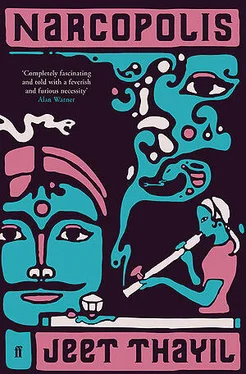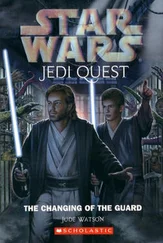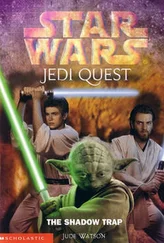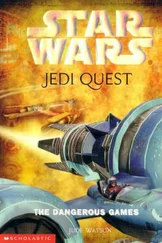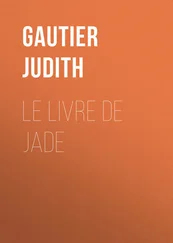Jeet Thayil - Narcopolis
Здесь есть возможность читать онлайн «Jeet Thayil - Narcopolis» весь текст электронной книги совершенно бесплатно (целиком полную версию без сокращений). В некоторых случаях можно слушать аудио, скачать через торрент в формате fb2 и присутствует краткое содержание. Год выпуска: 2012, Издательство: Faber & Faber, Жанр: Современная проза, на итальянском языке. Описание произведения, (предисловие) а так же отзывы посетителей доступны на портале библиотеки ЛибКат.
- Название:Narcopolis
- Автор:
- Издательство:Faber & Faber
- Жанр:
- Год:2012
- ISBN:нет данных
- Рейтинг книги:3 / 5. Голосов: 1
-
Избранное:Добавить в избранное
- Отзывы:
-
Ваша оценка:
- 60
- 1
- 2
- 3
- 4
- 5
Narcopolis: краткое содержание, описание и аннотация
Предлагаем к чтению аннотацию, описание, краткое содержание или предисловие (зависит от того, что написал сам автор книги «Narcopolis»). Если вы не нашли необходимую информацию о книге — напишите в комментариях, мы постараемся отыскать её.
Outside, stray dogs lope in packs. Street vendors hustle. Hookers call for custom through the bars of their cages as their pimps slouch in doorways in the half-light. There is an underworld whisper of a new terror: the Pathar Maar, the stone killer, whose victims are the nameless, invisible poor. There are too many of them to count in this broken city.
Narcopolis
Narcopolis — читать онлайн бесплатно полную книгу (весь текст) целиком
Ниже представлен текст книги, разбитый по страницам. Система сохранения места последней прочитанной страницы, позволяет с удобством читать онлайн бесплатно книгу «Narcopolis», без необходимости каждый раз заново искать на чём Вы остановились. Поставьте закладку, и сможете в любой момент перейти на страницу, на которой закончили чтение.
Интервал:
Закладка:
*
Lee and his father didn’t give much thought to his mother’s new regard for education. She’d wanted to take driving lessons, though there was little chance the family would ever own a car. She’d attended a class in martial arts but didn’t return after the first lesson because she was unused to physical exercise. She’d wanted to be a structural engineer, because, she said, bridges were the key to the future. But nothing had come of these desires. This time it was different. She actually enrolled in the night college, though she hadn’t passed the requisite exams and could not officially register for classes. She read aloud from textbooks of modern history, her voice shrill, as if she was arguing with someone, an old argument that had only gotten worse with the passage of time. As the day for the exams approached she became increasingly nervous. She slept very little and she forgot to eat. One night his father brought home a carp that someone had presented him and he made a stew with shallots, peeled ginger, some cloves of crushed garlic and half a spoon of sesame oil. His mother stayed in her room, not emerging even though delicious smells were wafting through the house. His father put some of the fish stew in a bowl and served it to her with a side dish of rice and barbecue pork. Her wail was loud enough to wake the neighbours. You’re trying to destroy me, she said. You want to corrupt me with food. You want me to die, die. How many times have I said it’s wrong to eat so much pork when two hundred and fifty grams is the quota per person per month? You are killing me. She went into the other room and shut the door. Lee heard the sound of furniture being moved and something falling to the floor. They went outside and looked in through the window. Lee’s mother was levitating. She wanted to rise to heaven but her progress was impeded by something caught in her throat. Her face had turned dark and her glasses were missing. Where were her glasses? He looked around and saw them on the floor, broken in three pieces, though the bandage was still intact. His father smashed the window and held her by the legs while Lee untied her. The rope left a gouge, a deep red furrow that she carried for the rest of her life.
Chapter Three ‘Opium-smoking bandit’
Around this time, some writers were summoned to the communist headquarters to attend a series of talks by Mao Tse-tung. On the fourth day, in the session titled ‘Talks on Art and Literature’, Mao laid down a number of guidelines for writers. They must seek neither fame nor literary merit, he said, for these were avenues of self-gratification. Fame served no purpose other than to puff up the writer’s ego, which was already inflated by the self-absorbed nature of his or her work. He did not make this observation lightly, said Mao, for he too was a writer, and a reader, and this fact gave him a vantage point from which to view the literary world’s numerous pretensions. Very few writers were willing to face the truth, that their work was no more important than a peasant’s. In fact, without the peasant the nation would plunge into a crisis. Without writers, the nation would most likely prosper. Yet writers were prone to endless egotism, which was the worst of the bourgeois mannerisms that continued to infect China. Bourgeois ideas manifested themselves in several ways, said Mao, some insidious, some obvious, but all marked by the self-indulgence known as individualism. Only a process of continuous purification would cleanse society of the menace. As for literary merit, it was as dangerous a preoccupation as seeking out fame since such merit served only to perpetuate the writer’s posthumous reputation. What was the use of such a reputation? How did it serve society? The proper use for literature, said Mao, was in the service of the political cause. Writers who did not understand this had no place in the new China.
Among those summoned to the talks was Lee’s father, who experienced a contraction in his stomach when he heard Mao’s words. He kept his feelings to himself. His friend, the prolific novelist, essayist and translator Ling Ling, didn’t accept the Chairman’s view of literature and its purpose, and was heard to say as much. She said a work of art had its own rules and was subject to no limits other than those imposed by its creator’s imagination or lack thereof. The characters in a work of fiction could not be depicted in mere black and white as in some overtly political work. Heroes, she said, were not always pure in motive and character, sometimes they told lies or were deceived; and villains were not wholly villainous, more often they were conflicted and unhappy and caught up in the tortuous relationship between socialist ideals and the age-old engine of self-interest. For her views, Ling Ling was denounced as a rightist and sent directly to a labour camp, where she was expected to qualify to work as a peasant. It took a little less than a week before her work was judged unsatisfactory and she was sent to prison. Ling Ling had trained as a medical doctor and she was able to withstand some of the hardships of prison, but three months after her internment she made a spectacular address to the National People’s Congress. Everything I have ever written should be destroyed, everything, everything, destroyed and burned to ashes and the ashes flung into the wind, she said. I have not sufficiently studied the works of Chairman Mao Tse-tung and therefore my own work is worthless. However, I am only sixty-seven years old and I can still be of use. If I am asked to fight the enemy using only my bare hands I shall do so. I will fight until my hands are stumps. Though Lee’s father was spared prison, he and two others seen as close to Ling Ling were given re-education classes in the fields that surrounded the encampment. He was allowed to smoke and sing but he was not to speak to his fellow workers or look at books or use a pen.
*
When he came home three weeks later he was silent about what had occurred during his visit to the headquarters of the communists. If neighbours asked he replied that it had been an instructional stay and he would say nothing more. He took to smoking opium with new vigour. For as long as Lee could remember his father had smoked a pipe on rare occasions. He smoked in the disciplined way of a connoisseur, rarely taking more than one at a time. He bought good-quality opium and stretched a pipe over the course of an evening. This was different. With his wife confined to her room and his mind full of questions about his work, he dedicated himself to the pipe, smoking six to eight in the course of a single day, and in between he smoked cigarettes. He lit a cigarette, left it in the ashtray and lit another. When he took a break, he went to his writing desk and worked for an hour or two, no more, and in this way he finished the last of the Ah Chu stories, The Eruption of Ah Chu , which centred on an outbreak of psoriasis suffered by the unfortunate old man. There are long descriptions of the virulent nature of the disease, of the different kinds of scratching that Ah Chu resorts to in the vain hope of finding relief. Throughout the book’s two hundred or so pages, winter darkness prevails. There is rain and sleet and never a chance of sunshine, because Ah Chu, plunged into insomnia and irregularity by his complaint, leaves his bed only at night. At the end, reduced to a puddle of bile and pus on a pungent sickbed, Ah Chu hangs himself from the chandelier in his dining room. Minutes later, the sun rises, which is the only moment in the dense and claustrophobic narrative that light appears in the gloom. The Eruption of Ah Chu didn’t sell many copies and it brought some unwelcome official attention. The People’s Daily said Lee’s father had flirted too much with metaphor and as a result his book was full of confusion. However, since it was the work of a writer who had established his reputation as a critic of decadence, a single lapse was excusable. This appeared to be the official line because other publications echoed it, as did those cadres who were considered knowledgeable about party affairs. Lee’s father paid no attention to the criticism. He was busy working on a real book. With Ah Chu dead at long last, dead with no possibility of resurrection, he was free to concentrate on a new kind of writing, a long-pending project he had put off for many years. He worked in his usual offhand manner, writing in half-hour bursts, as if his only aim was to take a break from the opium pipe. And in this way he produced a slim volume titled Prophecy , which disappeared from the bookshelves almost as soon as it was published. It was 1957, the year of the first purge, and when booksellers realized the nature of the book’s contents, they either destroyed their copies or hid them or deliberately lost them. The official reaction was swift. Lee’s father was a revisionist, it was said, and he should be sent to the countryside for manual labour. He was an opium-smoking bandit. He would be made to wear a placard that said: i am a monster. One self-described ultra-leftist, a writer of short stories, said the book was the product of a diseased mind ‘fit only to be a maggot on the corpse of its putrefied revisionist masters’. He recommended that the author be sent to prison. The most sustained criticism came from a novelist who was known to be a Party favourite. All his books shared a similar plot and similar characters, though names were changed from story to story. The hero was always a handsome young peasant who was persecuted at work by a superior. The peasant was a student of the works of Chairman Mao. His superior was a former landlord or government official, a smooth-talker and seducer, in short, a lecher and villain who has sabotaged a cherished village project, the building of a dam, say, or a bridge, or a telegraph office. After much struggle, the hero succeeds in unmasking his superior as the cause of the sickness that has plagued the children of the village and the reason the region has not prospered despite its hard-working inhabitants. The older man is ousted from his job and the young worker takes his place. At the end, the young protagonist quotes an aphorism of Chairman Mao’s concerning the permanent nature of class struggle: ‘What was taken from the peasants must be returned to them. That is the law, today and for ever.’ Or: ‘Revolution must follow revolution without interruption.’ Or even: ‘People say they’re tense because vegetables and soap are in short supply. I’m tense before midnight but I take sleeping pills and feel better. Try pills.’ The formulaic nature of the novelist’s work had not reduced his sales; in fact, they’d risen steadily over the years. The novelist was the first to publish a long critique of Prophecy , saying, among other things, that Lee’s father deserved execution because his book celebrated decadence as a virtue. He was ‘a stinky dog who likes to defecate in the dark’ and he deserved to be punished for his failings. The novelist also took advantage of the turmoil in the capital to put up a big-character wall poster that denounced Lee’s father as a ‘counter-revolutionary parasite of the Khrushchev type’. It was one of more than a hundred thousand posters plastered on the walls of Peking at that time, but even so it was noticed and some lines were quoted in the People’s Daily : ‘A fly cannot topple a giant tree. What can a decadent daydreamer and bourgeoisie do? We will not let you pollute the socialist future of China!’ This appeared to be the verdict of the Party, for it was clear that the novelist was only echoing what his masters told him. Lee’s father’s career was at an end but before he could be taken to prison he fell ill.
Читать дальшеИнтервал:
Закладка:
Похожие книги на «Narcopolis»
Представляем Вашему вниманию похожие книги на «Narcopolis» списком для выбора. Мы отобрали схожую по названию и смыслу литературу в надежде предоставить читателям больше вариантов отыскать новые, интересные, ещё непрочитанные произведения.
Обсуждение, отзывы о книге «Narcopolis» и просто собственные мнения читателей. Оставьте ваши комментарии, напишите, что Вы думаете о произведении, его смысле или главных героях. Укажите что конкретно понравилось, а что нет, и почему Вы так считаете.
